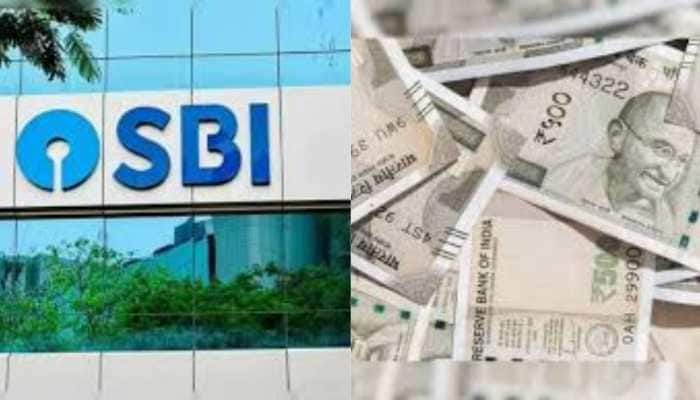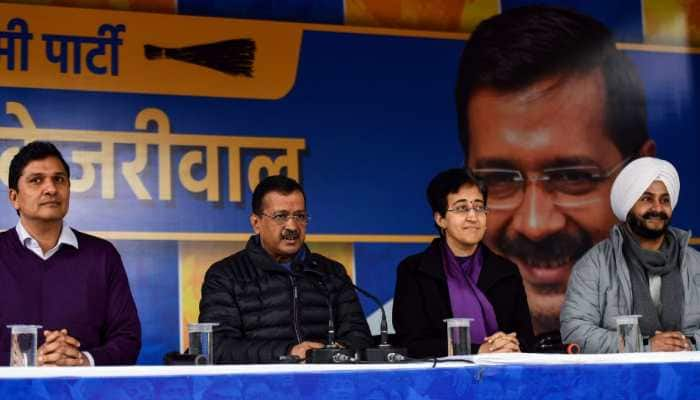Pakistan a terrorist state?
Should the Indian government use diplomatic tools to put pressure on the global community to declare Pakistan a terrorist state?
Trending Photos
)
 Biplob Ghosal
As the horror of Mumbai terror attacks sinks in…the wails of victims resound in our ears… the Taj stands testimony to terrorists’ brutality, India stands united to seek an explanation. The question that arises is - should the Indian government use diplomatic tools to put pressure on the global community to declare Pakistan a terrorist state?
Since this debate crops up from time to time, the questions that arises concerns criteria that should be adopted to declare Pakistan a terrorist state. If we take a cue from encyclopaedia, “State terrorism is violence upon a national population committed by national governments or their proxies. State terrorism can be effected directly, at the hands of national military or security forces, or indirectly, through state sponsored terrorist organisations. States can terrorise their own populations, to secure rule and suppress dissent, or foreign citizens, to support favoured or destabilise unfavoured foreign regimes.”
In the light of this definition, Pakistan comes very close to fit in this status. The investigations in Mumbai terror attacks give ample evidence of Pakistan`s role. In addition the lone terrorist nabbed in the Mumbai attack has revealed that all the persons involved were trained in Pakistan.
Pakistan’s complicity
This is not the first time Pakistan’s involvement has been revealed in terror-related activities. The country has been actively fomenting terrorism and militancy in different parts of the world including South Asia. It has emerged as the chief promoter of the so-called Islamic militancy.
Here, underworld don Dawood Ibrahim’s case becomes very significant. He is believed to have masterminded the 1993 Mumbai serial blasts, and is reportedly enjoying a lavish lifestyle in Pakistan. But successive governments there have brazenly denied the fact.
In 1999, when terrorists hijacked an Indian Airlines plane IC 814, they demanded the release of three dreaded ultras, including Masood Azhar and two others.
One of the released terrorist, British-born Omar Ahmad Saeed Sheikh, was sentenced to death on July 15 by an anti-terrorism court in Hyderabad in Pakistan for kidnapping and murdering Wall Street Journal reporter Daniel Pearl.
The other released terrorist Masood Azhar still roams freely in Pakistan and shares close connection with powerful state officials.
Lashkar-e-Taiba (LeT), a terrorist organisation based in Pakistan, has a long past of involvement in various terror activities in India including Red Fort attack in 2000, Indian Parliament attack in 2001, 2006, Mumbai local train bombings – just to name a few.
As per the CIA report, the attack on Indian Embassy in Kabul this year was also carried out by Pakistan based terrorist groups along with ISI. India presented evidence to Pakistan regarding the involvement of ISI, but all in vain.
Terrorism emanating from Pakistan is not only injuring India, but also hurting other parts of the world. The 9/11 attack on America, the London bombings in 2005, a foiled attempt to attack the Glasgow airport - all had some connection with Pakistan, be it the nationality of the accused or their training or funding.
Promoter of Terrorism
According to a CIA report, LeT still conducts training of militants inside Pakistan, runs a large charitable and social-service organisation in the name of Jamaat-ud-Dawa (JuD), a fact that has been accepted by Pakistani officials, and even has a designated spokesmen to handle inquiries from media.
LeT was founded around 20 years back to create disturbances and to extend moral support to separatists in Kashmir. It operates from a 200-acre training complex that has religious school and conference centre, in the village of Muridke in eastern Pakistan.
In December 2001, US declared Lashkar a terrorist organisation after it was accused of attacking the Indian Parliament. Despite this, its leader Hafiz Saeed openly engages in anti-India rhetoric in full knowledge of Pakistani authorities.
In April 2006, the US classified JuD as a terrorist organisation. But the Pakistan government neither banned it nor shared any information about it. The group continues to raise funds, run religious schools and supply terrorists.
But lately after the Mumbai terror attacks the United Nations Security Council has placed sanctions against Pakistan-based JuD, a front organisation for Lashkar-e-Taiba, declaring it a terrorist organisation.
But it seems the ban has not left any impact on JuD as Indian Foreign Minister Pranab Mukherjee recently said that reports of Jamaat-ud-Daawa changing name to keep its operations intact is not a new development and that even Lashkar-e-Taiba had resorted to such tactics to avoid being banned. He also stressed that it is upto the government of Pakistan to stop these organisations from flourishing in any form, name or shape. According to reports, the organisation is in the process of adopting a new name -- Tehreek-e-Hurmat-e-Rasool to avoid restrictions.
In 2005, Pakistan`s Ambassador to Washington Husain Haqqani candidly said, "The most significant Jihadi group of Wahhabi persuasion (influenced by the doctrine of 18th-century Islamic scholar Muhammad ibn-Abdul Wahhab) is Lashkar-e-Toiba, which is backed by Saudi money and protected by Pakistani intelligence service, ISI.”
Inter Services Intelligence
A number of reviewers have put a question mark on the loyalty of Pakistan`s armed forces and intelligence agency, Inter Services Intelligence (ISI). In fact, Pakistani military officers were even detained for alleged ties with al Qaeda.
The ISI, created in 1948 by the British Army to provide assistance to Military Intelligence, in its initial stage was limited to gather intelligence except in relation to the disputed region in Pakistan-occupied Kashmir (PoK) and the Northern areas of Gilgit and Baltistan.
In 1958, Lt Gen Ayub Khan brought it into political stream and assigned it the task to safeguard Pakistan’s interests, to monitor political opposition and to sustain military rule. Gradually, ISI established its control over military intelligence and Intelligence Bureau.
The ISI’s strategy, however, deeply conflicts with that of the West - a point underlined by
the resurgence of al Qaeda and the Taliban and the beginning of war on terror almost six years back. With new developments in Pakistan, reliability on the ISI is failing. The West should rethink over its intelligence strategy towards Pakistan now, especially in the wake of Mumbai attacks.
Global Terror Imprints
Further, the doubts about Pak’s link to terrorists were laid to rest by Abdul Qadeer Khan, father of Pakistan’s nuclear programme, who had confessed to the fact that he transferred nuclear technology to Iran and Libya. A United States State Department official on condition of anonymity told a US daily that Libya did not get nuclear warhead documents from China but from Pakistan’s nuclear scientist Dr Khan’s supplier network.
The question here arises as to how such a vast terror network could work without the knowledge of the-then Pak leadership. Although Pakistan claims to be a responsible nuclear power, yet it shies away from taking responsibility or acknowledging the fact that their chief nuclear scientist sold nuclear weapons technology to rogue nations, often using Pakistani military transports that could hamper world security.
Finance
According to the US Government Accountability Office (GAO), Taliban and al Qaeda are freely operating in Pakistan`s restive tribal area bordering Afghanistan.
Emphasising on the same issue, a senior US Congressman Frank Pallone said, "It is obvious that in the area near Afghanistan, which is used by al Qaeda and the Taliban as a way to move into Afghanistan and oppose American forces there, there is no control. It is obvious that even though they have outlawed the organisations that were trying to sever Kashmir from India, they continue (to exist). So the government really has no control.”
Now the question arises - from where do the militants get finance to sustain their activities? "The United States has provided Pakistan more than USD 10.5 billion for military, economic, and development activities. Pakistan`s Federally Administered Tribal Areas (FATA), which borders Afghanistan, are vast unpoliced regions attractive to extremists and terrorists seeking a safe haven," the GAO said.
According to a report published in June this year by GAO and the House Committee on Foreign Affairs said the Coalition Support Funds cannot prove that the money went to projects or operations specifically fighting terrorists.
While calling the program critical to the war on terrorism, the GAO found numerous concerns about the accuracy of the Pakistani accounting.
"As a result, we conclude that Defence cannot accurately determine how much of the aid has been reimbursed to Pakistan since 2001 were actually incurred,” the report said.
Clearly, Pakistan has been inefficient in countering terrorism despite the huge aid offered by the US.
US role
In the past, there have been numerous instances when Pakistan stood on the brink of being declared a terrorist state. In 1992, it came close to being named a state sponsor of terrorism in when then Secretary of State James Baker charged the-then Pakistani Prime Minister Nawaz Sharif of supporting terrorism in Jammu and Kashmir.
The-then US envoy in Islamabad, Nicholas Platt conveyed to Sharif, “We (US) are very confident of our information that your intelligence service, the Inter-Services Intelligence Directorate, and elements of the Army are supporting Kashmiri and Sikh militants who carry out acts of terrorism.”
In 1999, US Congressman Gary Ackerman called for Pakistan to be blacklisted as a terrorist state if it does not immediately cease assistance to terrorists in Kashmir.
The Democratic co-chairman of the Congressional Caucus on India said that if Islamabad does not shun helping "Islamic terrorists in the Kargil and Dras area of Jammu and Kashmir and (unless it) withdraws its forces from the region, the State Department must add Pakistan to its annual list of state sponsors of terrorism."
The 9/11 Commission Report suggested Pakistan as a state sponsor of terrorism. The-then Secretary of State Madeleine Albright had opposed it, saying it would destroy US’ influence in Islamabad. And that has been the dilemma of Western policy towards Pakistan ever since.
The US, flag bearer of democracy, has a major role to play in declaring Pakistan a terrorist state, but its action has always been directed more by its strategic interest rather than any genuine desire to eradicate terrorism.
However, ISI’s role is a contradictory one. This can be proved by former President Pervez Musharraf’s statement, “The ISI is a disciplined force, for 27 years they have been doing what the government of Pakistan has been telling them.” This clearly raises a question on whether the ISI is secretly helping the terrorist organisations on its own or is it acting on government’s dictation?
All the above points, whether it is using the funds provided by the US, or the CIA reports indicating the involvement of Pakistani organisations in terrorist activities, point towards one conclusion - Pakistan’s soil is being used for terror activities. It is therefore high time that US must come to the forefront and call the bluff of its ally in ‘global war on terror’ and declare it a Terrorist State.
Biplob Ghosal
As the horror of Mumbai terror attacks sinks in…the wails of victims resound in our ears… the Taj stands testimony to terrorists’ brutality, India stands united to seek an explanation. The question that arises is - should the Indian government use diplomatic tools to put pressure on the global community to declare Pakistan a terrorist state?
Since this debate crops up from time to time, the questions that arises concerns criteria that should be adopted to declare Pakistan a terrorist state. If we take a cue from encyclopaedia, “State terrorism is violence upon a national population committed by national governments or their proxies. State terrorism can be effected directly, at the hands of national military or security forces, or indirectly, through state sponsored terrorist organisations. States can terrorise their own populations, to secure rule and suppress dissent, or foreign citizens, to support favoured or destabilise unfavoured foreign regimes.”
In the light of this definition, Pakistan comes very close to fit in this status. The investigations in Mumbai terror attacks give ample evidence of Pakistan`s role. In addition the lone terrorist nabbed in the Mumbai attack has revealed that all the persons involved were trained in Pakistan.
Pakistan’s complicity
This is not the first time Pakistan’s involvement has been revealed in terror-related activities. The country has been actively fomenting terrorism and militancy in different parts of the world including South Asia. It has emerged as the chief promoter of the so-called Islamic militancy.
Here, underworld don Dawood Ibrahim’s case becomes very significant. He is believed to have masterminded the 1993 Mumbai serial blasts, and is reportedly enjoying a lavish lifestyle in Pakistan. But successive governments there have brazenly denied the fact.
In 1999, when terrorists hijacked an Indian Airlines plane IC 814, they demanded the release of three dreaded ultras, including Masood Azhar and two others.
One of the released terrorist, British-born Omar Ahmad Saeed Sheikh, was sentenced to death on July 15 by an anti-terrorism court in Hyderabad in Pakistan for kidnapping and murdering Wall Street Journal reporter Daniel Pearl.
The other released terrorist Masood Azhar still roams freely in Pakistan and shares close connection with powerful state officials.
Lashkar-e-Taiba (LeT), a terrorist organisation based in Pakistan, has a long past of involvement in various terror activities in India including Red Fort attack in 2000, Indian Parliament attack in 2001, 2006, Mumbai local train bombings – just to name a few.
As per the CIA report, the attack on Indian Embassy in Kabul this year was also carried out by Pakistan based terrorist groups along with ISI. India presented evidence to Pakistan regarding the involvement of ISI, but all in vain.
Terrorism emanating from Pakistan is not only injuring India, but also hurting other parts of the world. The 9/11 attack on America, the London bombings in 2005, a foiled attempt to attack the Glasgow airport - all had some connection with Pakistan, be it the nationality of the accused or their training or funding.
Promoter of Terrorism
According to a CIA report, LeT still conducts training of militants inside Pakistan, runs a large charitable and social-service organisation in the name of Jamaat-ud-Dawa (JuD), a fact that has been accepted by Pakistani officials, and even has a designated spokesmen to handle inquiries from media.
LeT was founded around 20 years back to create disturbances and to extend moral support to separatists in Kashmir. It operates from a 200-acre training complex that has religious school and conference centre, in the village of Muridke in eastern Pakistan.
In December 2001, US declared Lashkar a terrorist organisation after it was accused of attacking the Indian Parliament. Despite this, its leader Hafiz Saeed openly engages in anti-India rhetoric in full knowledge of Pakistani authorities.
In April 2006, the US classified JuD as a terrorist organisation. But the Pakistan government neither banned it nor shared any information about it. The group continues to raise funds, run religious schools and supply terrorists.
But lately after the Mumbai terror attacks the United Nations Security Council has placed sanctions against Pakistan-based JuD, a front organisation for Lashkar-e-Taiba, declaring it a terrorist organisation.
But it seems the ban has not left any impact on JuD as Indian Foreign Minister Pranab Mukherjee recently said that reports of Jamaat-ud-Daawa changing name to keep its operations intact is not a new development and that even Lashkar-e-Taiba had resorted to such tactics to avoid being banned. He also stressed that it is upto the government of Pakistan to stop these organisations from flourishing in any form, name or shape. According to reports, the organisation is in the process of adopting a new name -- Tehreek-e-Hurmat-e-Rasool to avoid restrictions.
In 2005, Pakistan`s Ambassador to Washington Husain Haqqani candidly said, "The most significant Jihadi group of Wahhabi persuasion (influenced by the doctrine of 18th-century Islamic scholar Muhammad ibn-Abdul Wahhab) is Lashkar-e-Toiba, which is backed by Saudi money and protected by Pakistani intelligence service, ISI.”
Inter Services Intelligence
A number of reviewers have put a question mark on the loyalty of Pakistan`s armed forces and intelligence agency, Inter Services Intelligence (ISI). In fact, Pakistani military officers were even detained for alleged ties with al Qaeda.
The ISI, created in 1948 by the British Army to provide assistance to Military Intelligence, in its initial stage was limited to gather intelligence except in relation to the disputed region in Pakistan-occupied Kashmir (PoK) and the Northern areas of Gilgit and Baltistan.
In 1958, Lt Gen Ayub Khan brought it into political stream and assigned it the task to safeguard Pakistan’s interests, to monitor political opposition and to sustain military rule. Gradually, ISI established its control over military intelligence and Intelligence Bureau.
The ISI’s strategy, however, deeply conflicts with that of the West - a point underlined by
the resurgence of al Qaeda and the Taliban and the beginning of war on terror almost six years back. With new developments in Pakistan, reliability on the ISI is failing. The West should rethink over its intelligence strategy towards Pakistan now, especially in the wake of Mumbai attacks.
Global Terror Imprints
Further, the doubts about Pak’s link to terrorists were laid to rest by Abdul Qadeer Khan, father of Pakistan’s nuclear programme, who had confessed to the fact that he transferred nuclear technology to Iran and Libya. A United States State Department official on condition of anonymity told a US daily that Libya did not get nuclear warhead documents from China but from Pakistan’s nuclear scientist Dr Khan’s supplier network.
The question here arises as to how such a vast terror network could work without the knowledge of the-then Pak leadership. Although Pakistan claims to be a responsible nuclear power, yet it shies away from taking responsibility or acknowledging the fact that their chief nuclear scientist sold nuclear weapons technology to rogue nations, often using Pakistani military transports that could hamper world security.
Finance
According to the US Government Accountability Office (GAO), Taliban and al Qaeda are freely operating in Pakistan`s restive tribal area bordering Afghanistan.
Emphasising on the same issue, a senior US Congressman Frank Pallone said, "It is obvious that in the area near Afghanistan, which is used by al Qaeda and the Taliban as a way to move into Afghanistan and oppose American forces there, there is no control. It is obvious that even though they have outlawed the organisations that were trying to sever Kashmir from India, they continue (to exist). So the government really has no control.”
Now the question arises - from where do the militants get finance to sustain their activities? "The United States has provided Pakistan more than USD 10.5 billion for military, economic, and development activities. Pakistan`s Federally Administered Tribal Areas (FATA), which borders Afghanistan, are vast unpoliced regions attractive to extremists and terrorists seeking a safe haven," the GAO said.
According to a report published in June this year by GAO and the House Committee on Foreign Affairs said the Coalition Support Funds cannot prove that the money went to projects or operations specifically fighting terrorists.
While calling the program critical to the war on terrorism, the GAO found numerous concerns about the accuracy of the Pakistani accounting.
"As a result, we conclude that Defence cannot accurately determine how much of the aid has been reimbursed to Pakistan since 2001 were actually incurred,” the report said.
Clearly, Pakistan has been inefficient in countering terrorism despite the huge aid offered by the US.
US role
In the past, there have been numerous instances when Pakistan stood on the brink of being declared a terrorist state. In 1992, it came close to being named a state sponsor of terrorism in when then Secretary of State James Baker charged the-then Pakistani Prime Minister Nawaz Sharif of supporting terrorism in Jammu and Kashmir.
The-then US envoy in Islamabad, Nicholas Platt conveyed to Sharif, “We (US) are very confident of our information that your intelligence service, the Inter-Services Intelligence Directorate, and elements of the Army are supporting Kashmiri and Sikh militants who carry out acts of terrorism.”
In 1999, US Congressman Gary Ackerman called for Pakistan to be blacklisted as a terrorist state if it does not immediately cease assistance to terrorists in Kashmir.
The Democratic co-chairman of the Congressional Caucus on India said that if Islamabad does not shun helping "Islamic terrorists in the Kargil and Dras area of Jammu and Kashmir and (unless it) withdraws its forces from the region, the State Department must add Pakistan to its annual list of state sponsors of terrorism."
The 9/11 Commission Report suggested Pakistan as a state sponsor of terrorism. The-then Secretary of State Madeleine Albright had opposed it, saying it would destroy US’ influence in Islamabad. And that has been the dilemma of Western policy towards Pakistan ever since.
The US, flag bearer of democracy, has a major role to play in declaring Pakistan a terrorist state, but its action has always been directed more by its strategic interest rather than any genuine desire to eradicate terrorism.
However, ISI’s role is a contradictory one. This can be proved by former President Pervez Musharraf’s statement, “The ISI is a disciplined force, for 27 years they have been doing what the government of Pakistan has been telling them.” This clearly raises a question on whether the ISI is secretly helping the terrorist organisations on its own or is it acting on government’s dictation?
All the above points, whether it is using the funds provided by the US, or the CIA reports indicating the involvement of Pakistani organisations in terrorist activities, point towards one conclusion - Pakistan’s soil is being used for terror activities. It is therefore high time that US must come to the forefront and call the bluff of its ally in ‘global war on terror’ and declare it a Terrorist State.
Stay informed on all the latest news, real-time breaking news updates, and follow all the important headlines in india news and world News on Zee News.
Advertisement
Live Tv
Advertisement







)
)
)
)
)
)
)
)
)
)
